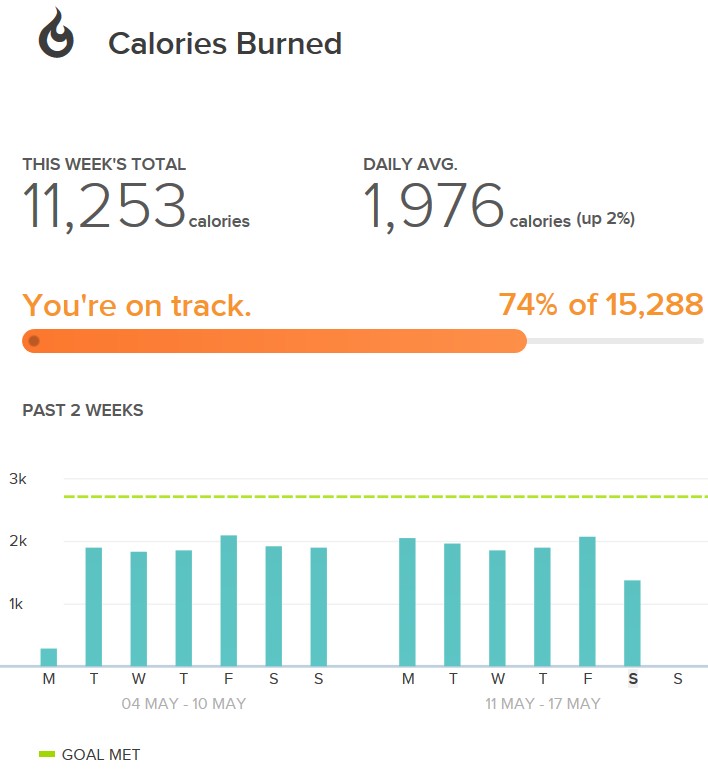Fitbit is a popular fitness tracker that many people use to track their steps, distance traveled, and calories burned. While the Fitbit is a great tool for tracking your fitness goals, it’s important to keep in mind that the calorie burn feature is not always accurate. In fact, there are a number of factors that can affect the accuracy of the calorie burn feature. These factors include:

Image: www.whathaveibeendoing.com
- Your weight: The heavier you are, the more calories you will burn during any given exercise. This is because your body has to work harder to move your weight.
- Your activity level: The more active you are, the more calories you will burn. So, if you are planning on using your Fitbit to track your calories, make sure to wear it whenever you are working out.
- Your heart rate: Your heart rate is a measure of how hard your heart is working. The higher your heart rate, the more calories you will burn. So, if you are working out at a high intensity, you will burn more calories than you would if you were working out at a low intensity.
- The type of exercise you are doing: Some exercises burn more calories than others. For example, running burns more calories than walking. So, if you are looking to burn a lot of calories, be sure to choose an exercise that is challenging.
- Your personal information: Your age, gender, height, and weight will affect your calorie burn.
If you are concerned about the accuracy of your Fitbit’s calorie burn feature, there are a few things you can do to get a more accurate reading.
- Update your Fitbit with your current information: This will ensure that the Fitbit is using the most accurate data when it calculates your calorie burn.
- Wear your Fitbit on your dominant hand: This will help your Fitbit get a more accurate reading of your movement.
- Track your steps: In addition to tracking your calories, it can also track your steps. The number of steps you take each day can affect your calorie burn and help you to find patterns between your activity and burned calories.
- Use other features: Fitbit has other features that can help you to track your fitness goals. For example, the sleep tracker can help you to get a better night’s sleep, which can also affect your calorie burn.
- Compare your Fitbit’s calorie burn to your actual food intake: If you are concerned about the accuracy of your Fitbit, you can compare its calculation to your actual food intake. Try adding up your calories manually for a week and see if it matches what your Fitbit is telling you.
Overall, the Fitbit is a great tool for tracking your fitness, but it’s highly recommended to be aware of the limitations of the calorie burn feature and to take steps to keep your Fitbit as accurate.
Image: www.hierarchystructure.com
How To Fix Fitbit Calories Burned